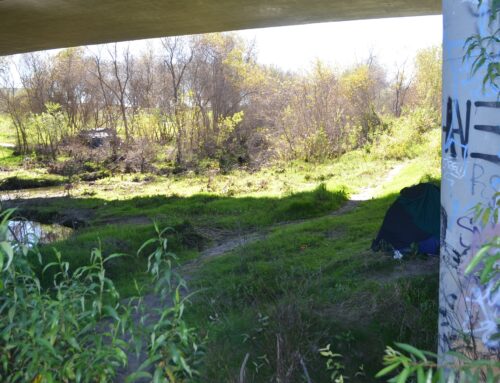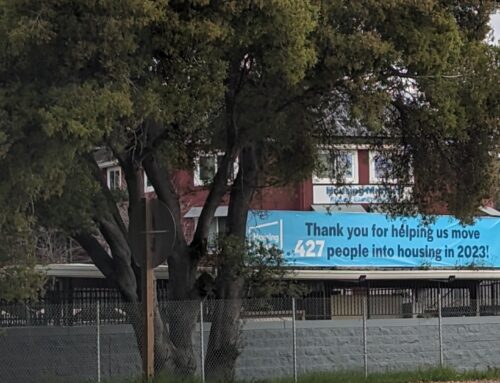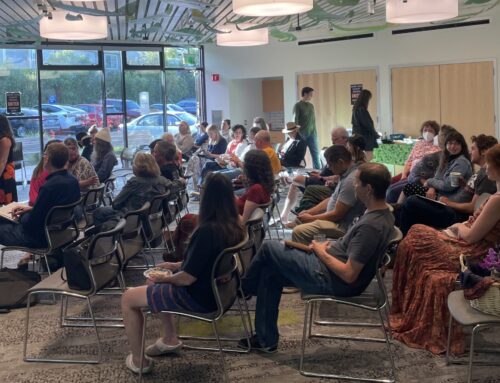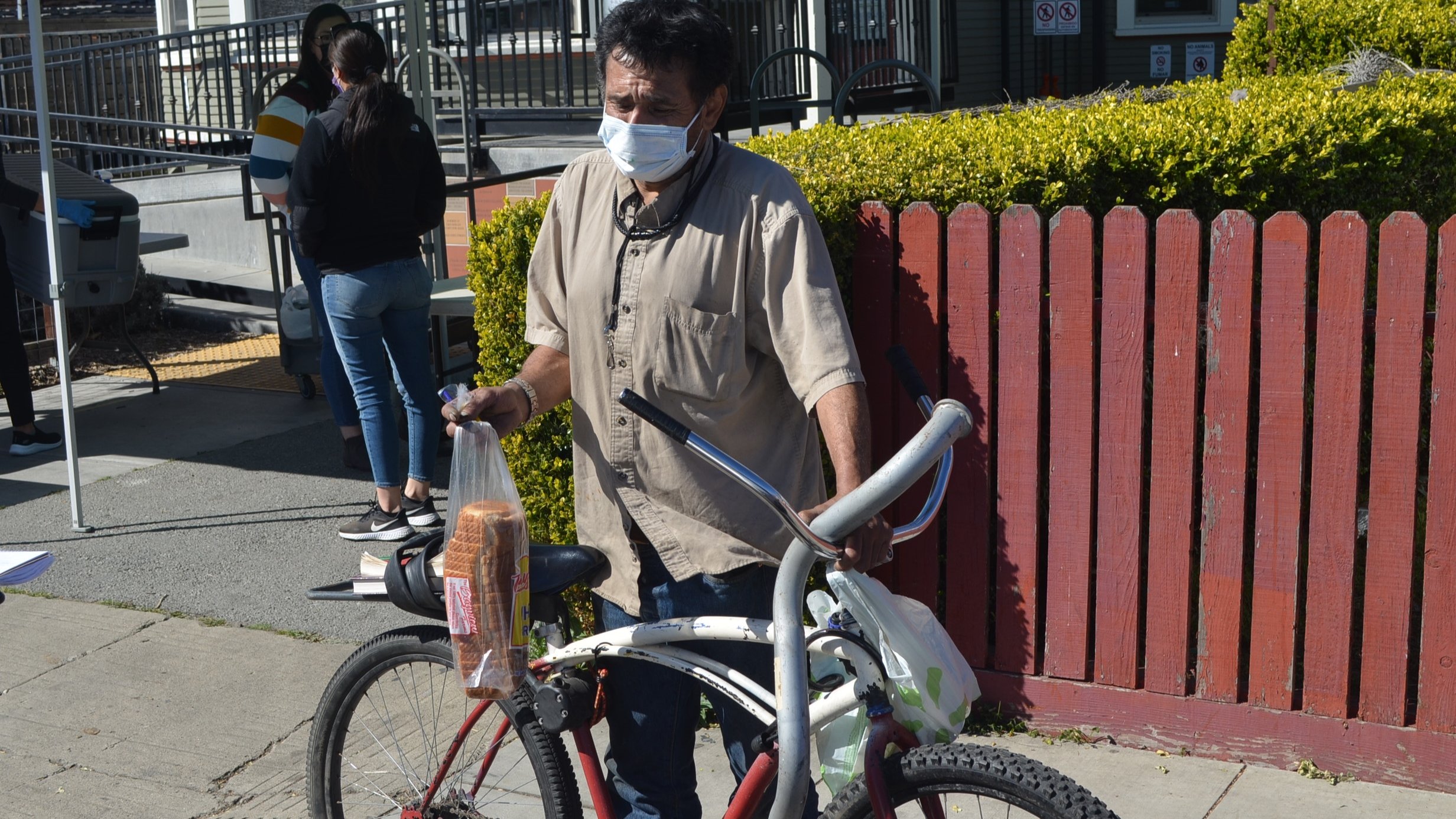
Andres Sandoval, 56, has worked as a plumber. He lived in his vehicle in Watsonville in early 2022 and said he wanted a more stable situation. (Stephen Baxter — Santa Cruz Local file)
WATSONVILLE >> Watsonville city leaders have started to craft a coordinated effort to fight rising homelessness.
During a public meeting Saturday, city council members and county staff were split on whether the plan should prioritize services for unhoused people, or a crackdown on illegal camps and drug use.
Watsonville City Council members are expected to review the feedback from study session attendees and continue a discussion of potential components of a strategic plan at a future council meeting. The plan will help Watsonville receive more county dollars for homelessness and more state and federal grants, said Suzi Merriam, Watsonville’s director of community development.
“The money is going to those areas that actually have projects to be funded,” she said. A strategic plan is “one step forward to getting that equitable piece of makeup of the county pie.”
The Watsonville plan could include:
- Homelessness prevention programs, including rental assistance and help improving credit scores.
- Programs to create more housing, including affordable housing.
- An expansion of Watsonville Works, a county-funded effort coordinated by Community Action Board that employs housed and unhoused people in cleanups.
- A camping ban or RV parking ban similar to those in the City of Santa Cruz.
Rising homelessness in Watsonville
A 2023 count found 22% fewer homeless people across Santa Cruz County compared with the year prior. In Watsonville during the same period, the number of homeless residents rose by 15%.
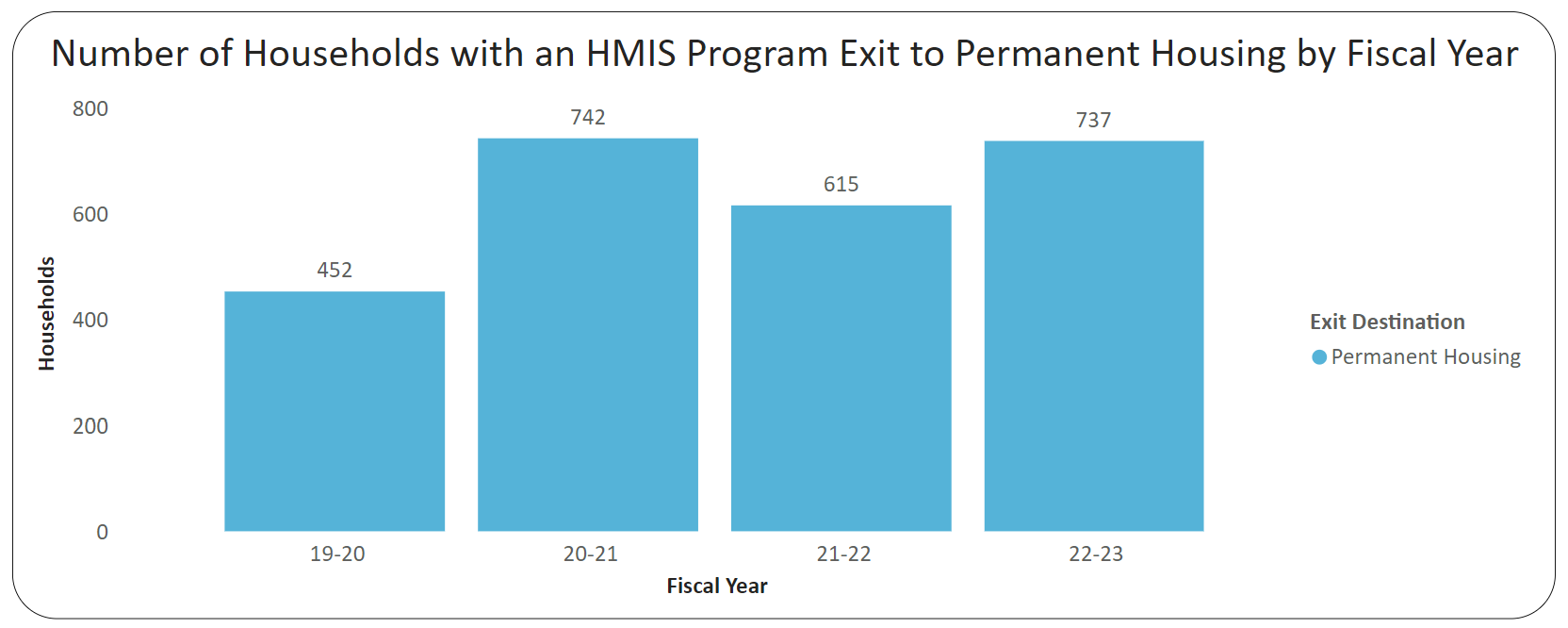
At least 737 people without homes in Santa Cruz County found permanent homes from July 2022 to July 2023, according to the Housing for Health Partnership. The Housing for Health Partnership is the county’s state mandated coordinator of services for people who are homeless or at risk of homelessness. (Housing for Health Partnership)
Homelessness response plans
Watsonville city staff and the city council are considering a coordinated homelessness response similar to plans in Santa Cruz and Santa Cruz County.
Watsonville’s growing homelessness problem comes with a smaller budget and fewer staff than the City of Santa Cruz or Santa Cruz County. The City of Santa Cruz has Homelessness Response Manager Larry Imwalle and homelessness outreach staff. The Housing for Health Partnership coordinates the county’s services for people who are homeless or at risk of homelessness.
“We don’t even have a homelessness department,” said Suzi Merriam, Watsonville director of community development. Leaders need to consider “What can we really take on? What can we afford to do?” she said.
No one who spoke at Saturday’s meeting identified themself as homeless. One of the first efforts of any plan would be to survey the homeless population, Merriam said.
“You can’t plan for any population subset without their involvement,” Merriam said.
In February, the Watsonville City Council approved $200,000 for a six-month homelessness pilot program as part of the strategic plan. The program includes:
- A new non-officer police employee to conduct outreach with unhoused people and connect them to resources.
- A contract with a nonprofit to provide staff to assist the police employee. City leaders have not yet chosen a nonprofit, but they are considering groups including Community Action Board and Santa Cruz Free Guide.
- More funding for trash cleanups on streets and other areas.
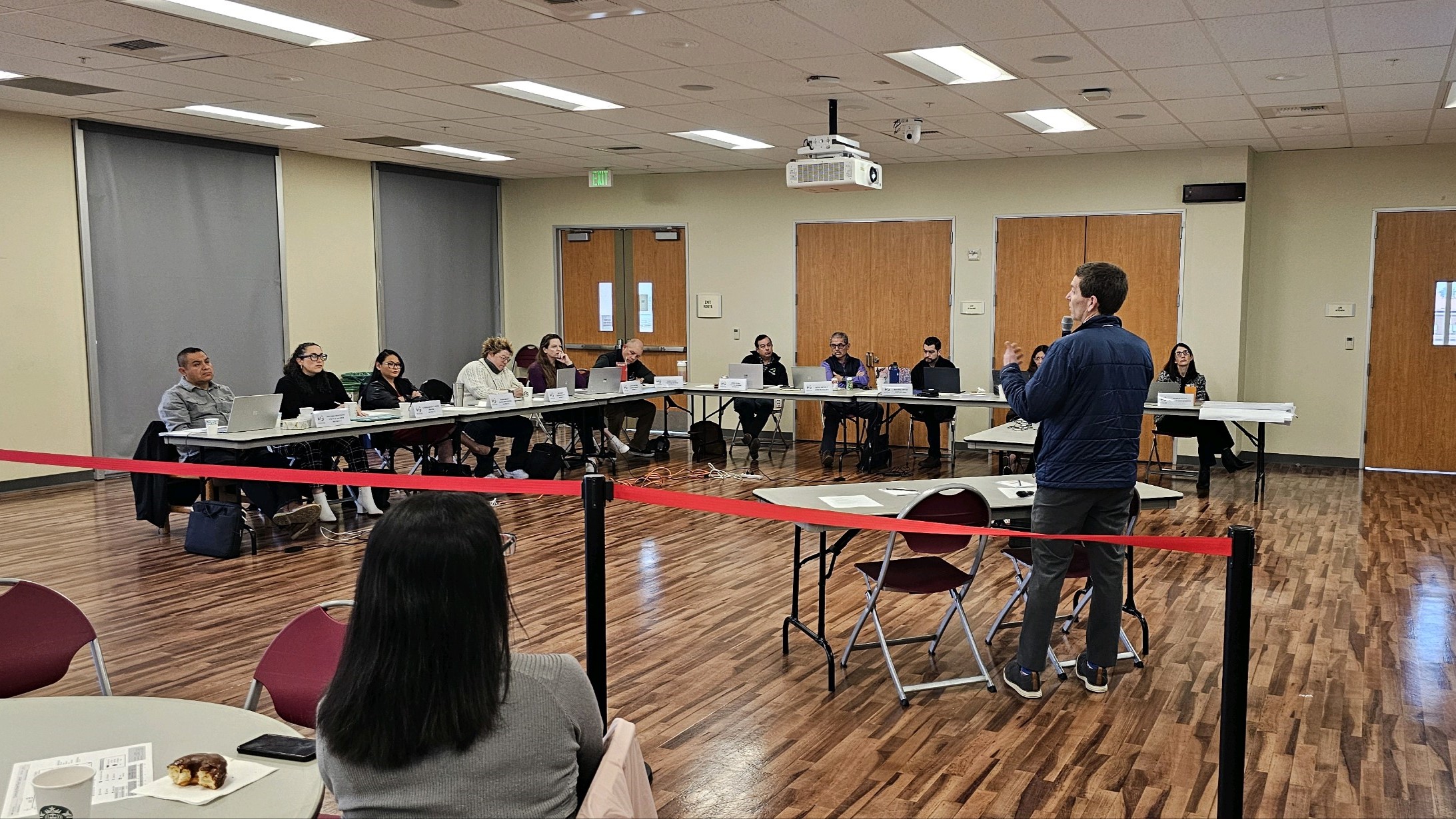
Dr. Robert Ratner, right, is the director of the County of Santa Cruz’s Housing for Health Division. He speaks during a study session on homeless services in Watsonville on Saturday. (Fidel M. Soto — Santa Cruz Local)
Homeless camp cleanups and emergency response for unhoused people cost the city hundreds of thousands of dollars last year, according to city department leaders. Costs include:
- More than $330,000, including cleanups of furniture from the Pajaro River levee.
- At least $25,000 in increased maintenance costs for parks.
- At least $60,000 in fire department response to fires lit by unhoused people, including cooking or heating fires.
- At least $80,000 in police time.
Conflict in priorities
Councilmember Jimmy Dutra said the city should focus its homelessness efforts on reducing crime, littering and public drug use.
“I think we’re deflecting, talking about the housing issue,” Dutra said. “My issue is the gentleman who was high and walked into my truck while I was driving around the corner.”
Councilmember Casey Clark agreed that Watsonville’s plan to address homelessness should focus on the concerns of local housed residents and business owners.
“It’s not that we’re trying to target someone, it’s that we’re seeing a lot of negative things coming out of that small number of people, and it’s really frustrating because we feel like we can’t help,” he said. “There are certain people that can’t make good decisions, and that’s how they get in these situations.”
“I do think we need to have a focus on the group that you all get called about,” said Robert Ratner, director of the County of Santa Cruz’s Housing for Health Division, in response. “But if we just focus on that, I think we’re going to miss the needs of the broader community.”
Recent state legislation could expand local governments’ ability to mandate mental health or substance use treatment.
“If we can help people access treatment on a voluntary basis, generally you get better outcomes,” Ratner said. If local governments focus on forced treatment, “we’re basically prioritizing a small group of people to get access to very limited resources,” he said.
In a recent county survey of people living on the Pajaro River Levee, about 90% of respondents said they would accept a shelter with privacy where they could bring belongings, such as a tiny home, Ratner said.
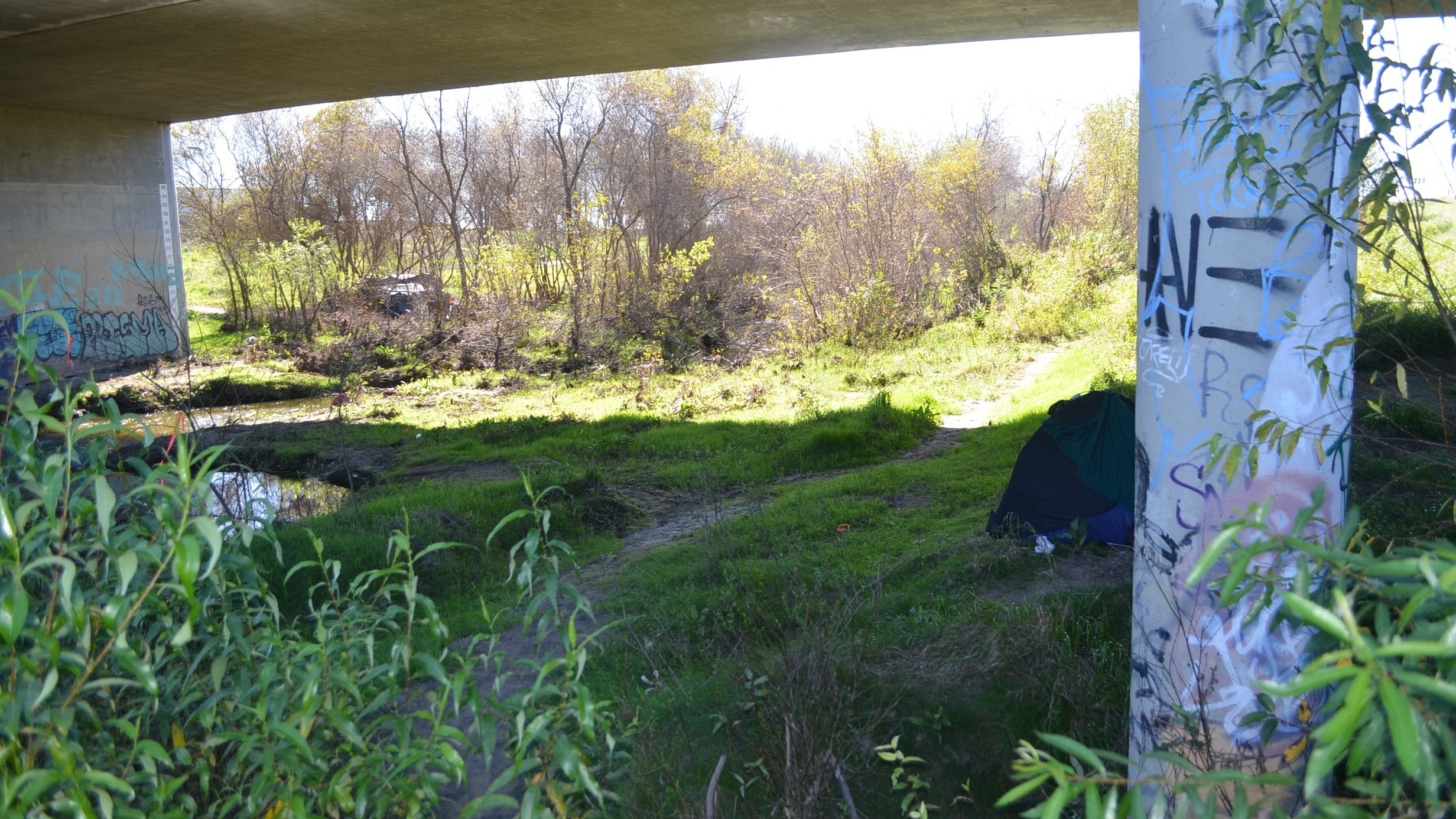
Two tents are pitched near the Pajaro River bridge in 2022. (Stephen Baxter — Santa Cruz Local file)
Union Street shelter to close, tiny homes to open
A planned shelter at Westview Presbyterian Church at 118 First St. in Watsonville is set to include 34 tiny homes for people living on the Pajaro River Levee and a navigation center to connect them to services. In June, the state approved $8 million for the shelter and the removal of homeless encampments along the levee.
As the county shifts its attention toward the tiny homes, a 23-bed Salvation Army shelter at 214 Union St. in Watsonville is set to close March 30.
“It’s really, really, really, really heartbreaking to see,” said Nayeli Mercado, who manages the shelter. Her guests “are scared, they don’t know what’s going on,” she said.
The county has been funding the Salvation Army shelter since 2018, mostly with one-time state money, Ratner said. “The hope was, you know, state money would keep coming,” he said. Now, the county has shifted what’s left of its shelter money to the tiny-home community.
The Salvation Army shelter also includes a mail center, which allows homeless people, including those without government IDs, to receive mail. Without county funding, the shelter will have to stop operating the mail center in June, Mercado said.
Ratner said the county’s contract with the Salvation Army did not include money for a mail service.
“We have been working with the Salvation Army to try to get as many resources for the people living in the shelter as possible,” he said.
The county has twice supported an application for the Rodeway Inn in Watsonville to be converted to housing through Project Homekey. The state rejected the project both times, but the city could submit it again, Ratner said.
In December, the state approved $3.6 million for a Project Homekey program in Freedom, just outside of Watsonville, to house 21 youths.
Read more
- Watsonville City Council targets RV parking, adds homeless services — Feb. 29, 2024
- Report finds fewer homeless residents in Santa Cruz County — Aug. 4, 2023
- Demand for homeless services climbs in Watsonville — Feb. 23, 2023
- 2716 Freedom Blvd., Freedom House transitional housing for youths — Last updated March 2024
Questions or comments? Email [email protected]. Santa Cruz Local is supported by members, major donors, sponsors and grants for the general support of our newsroom. Our news judgments are made independently and not on the basis of donor support. Learn more about Santa Cruz Local and how we are funded.
Jesse Kathan is a staff reporter for Santa Cruz Local through the California Local News Fellowship. They hold a master's degree in science communications from UC Santa Cruz.


